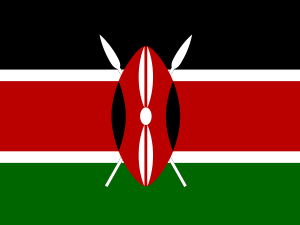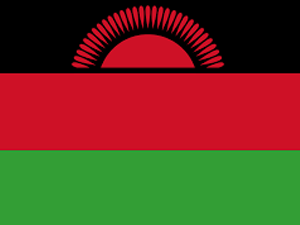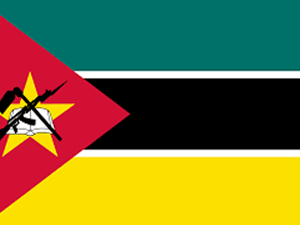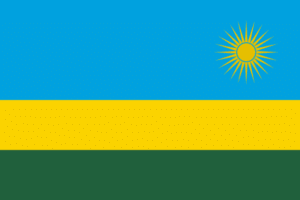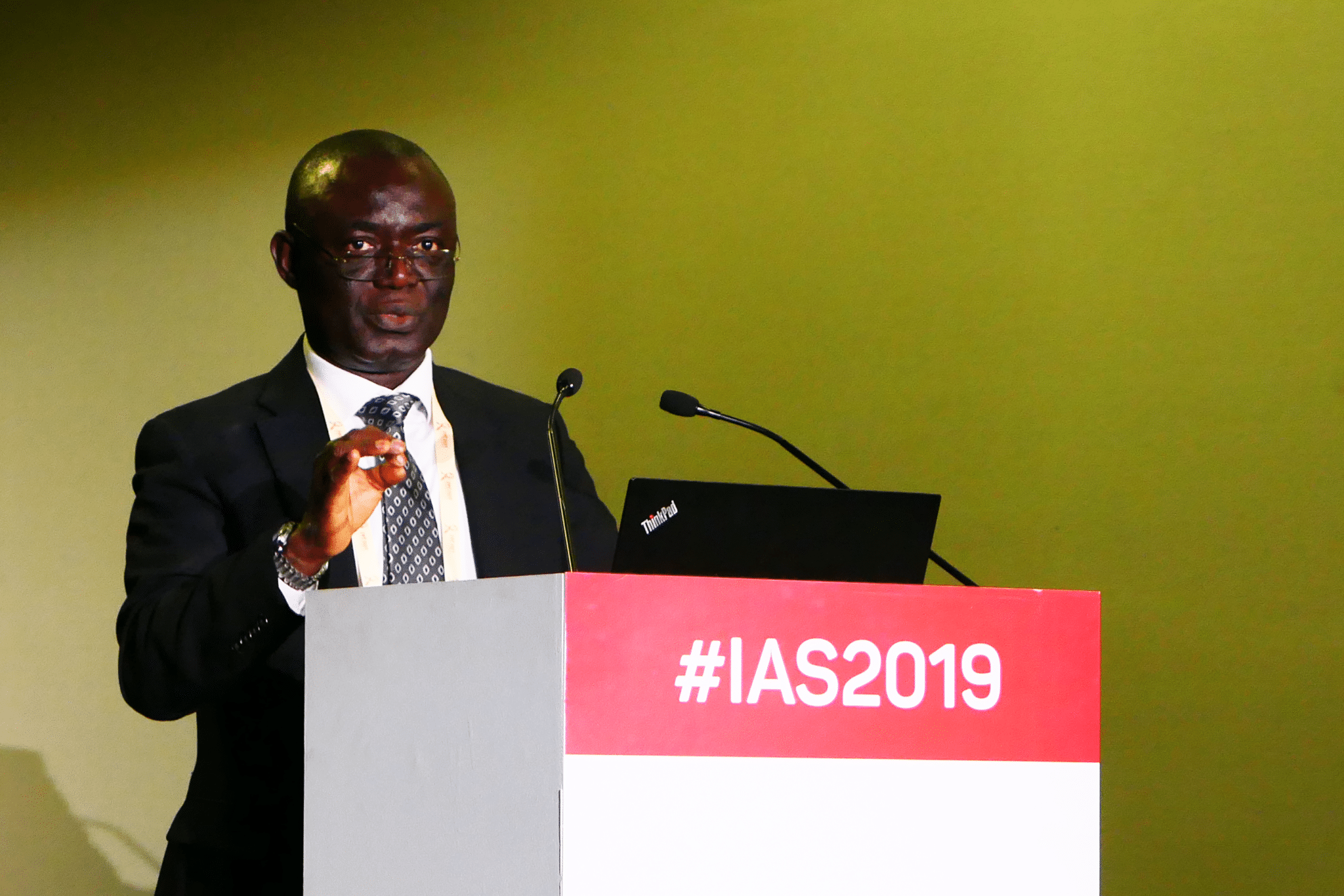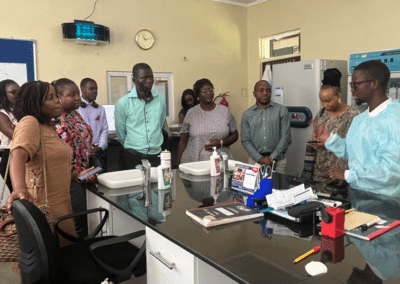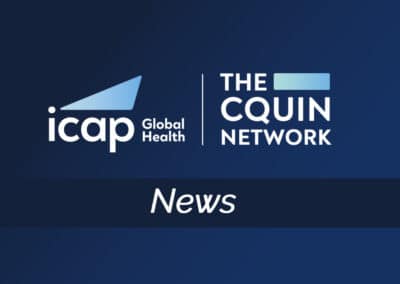At the recent 10th International AIDS Society (IAS) Conference on HIV Science in Mexico City, ICAP at Columbia University convened satellites to harness global expertise on two priority issues related to differentiated service delivery (DSD): how to differentiate services for people living with advanced HIV disease and how to integrate TB preventive therapy (TPT) into DSD models.
On July 21st, experts from the World Health Organization, the U.S. President’s Emergency Plan for AIDS Relief (PEPFAR), ministries of health, implementing partners, and networks of people living with HIV gathered at a satellite supported by the Beckman Coulter Foundation and the Bill & Melinda Gates Foundation to discuss more effective approaches to identify and treat people living with advanced HIV disease. The need is urgent: Dr. Andreas Haas, ICAP postdoctoral fellow, presented data from the Population-based HIV Impact Assessment (PHIA) surveys showing that nearly 20 percent of HIV-positive people in Malawi, Zambia, and Zimbabwe who are unaware of their status had advanced disease, with a CD4 cell count of less than 200 cells/µL. “This high prevalence of people who were diagnosed in the advanced stage of disease really highlights the need to implement novel, innovative, differentiated HIV testing strategies to reach these people earlier,” remarked Dr. Haas. The need for innovative treatment models for people with advanced HIV was also emphasized, with Dr. Peter Preko, CQUIN project director, describing the Call to Action on this topic from the countries in the CQUIN learning network.
Panelists noted obstacles to the identification and treatment of advanced HIV disease, including the de-emphasis of CD4 testing in the era of Test and Treat and regular stockouts of the commodities needed to treat advanced disease. Ms. Carolyn Amole, senior director of the HIV Access Program at the Clinton Health Access Initiative, described a UNITAID initiative seeking to widen access to the commodities necessary for preventing, diagnosing, and treating advanced disease. When asked about new innovations on the horizon, she advised, “there are quality point-of-care diagnostics available today for advanced disease and there is no need for us to hold off implementing advanced disease models of care or getting these commodities out to the countries that need them. Exciting innovations are in the pipeline, and we hope they’re available soon, but please don’t wait—for those implementers and ministries of health in the room—there’s no reason to wait, you can move forward today.”
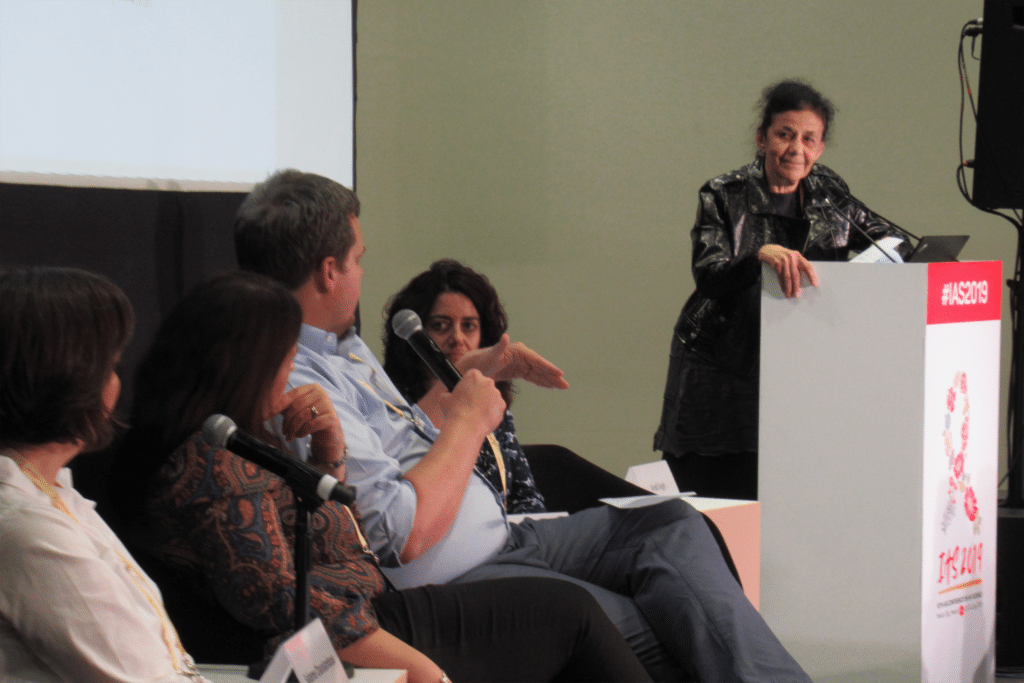 The following evening, attention shifted to tuberculosis (TB), the leading cause of death among people living with HIV. Dr. Wafaa El-Sadr, ICAP’s global director, began the session by emphasizing the importance of preventing TB among people living with HIV by using both antiretroviral therapy (ART) and TB preventive treatment (TPT). Although TPT is cheap, safe, and effective, coverage has remained low: of the 30 million people eligible for TPT in 2017, only one million received it. Current efforts to scale up DSD present opportunities for improving TPT coverage. “The experience with community ART groups is that adherence and retention is actually better, so this approach has the potential to achieve the same thing for TPT,” remarked Dr. El-Sadr.
The following evening, attention shifted to tuberculosis (TB), the leading cause of death among people living with HIV. Dr. Wafaa El-Sadr, ICAP’s global director, began the session by emphasizing the importance of preventing TB among people living with HIV by using both antiretroviral therapy (ART) and TB preventive treatment (TPT). Although TPT is cheap, safe, and effective, coverage has remained low: of the 30 million people eligible for TPT in 2017, only one million received it. Current efforts to scale up DSD present opportunities for improving TPT coverage. “The experience with community ART groups is that adherence and retention is actually better, so this approach has the potential to achieve the same thing for TPT,” remarked Dr. El-Sadr.
Dr. Hank Tomlinson, director of the Division of Global HIV & TB at the U.S. Centers for Disease Control and Prevention (CDC), explained that supporting the scale-up of TPT is a major PEPFAR priority and pointed participants to a new, comprehensive toolkit to help countries plan for, implement, and scale up routine TPT.
Dr. Andrea Howard, ICAP’s clinical and training unit director, emphasized how essential TB screening is and that a simple symptom screening tool—which can be used by professional and lay health workers alike—is effective at determining TPT eligibility.
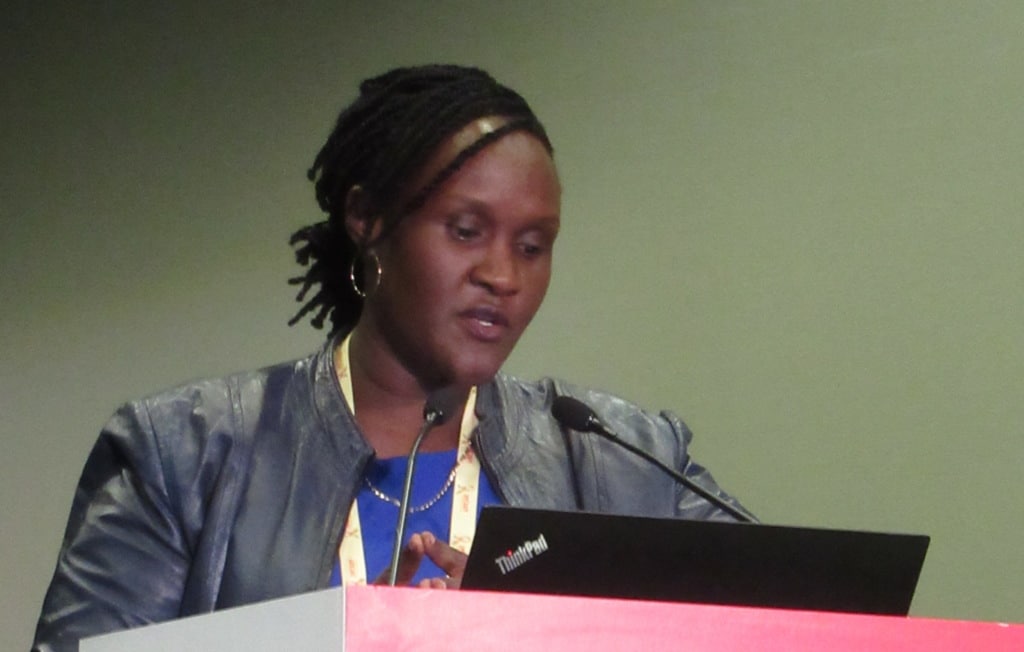 Dr. Cordelia Katureebe, national coordinator for HIV care and treatment for the Uganda Ministry of Health, spoke about Uganda’s recent successes supporting health workers to increase TPT coverage. “First, as a national program, we’ve instituted a Quality Improvement Collaborative to support frontline workers to start TPT for people living with HIV,” Katureebe said. “Secondly, we have just started a 100-day acceleration plan to initiate TPT among at least 50 percent of those eligible, which translates to around 300,000 recipients of care. This is quite ambitious, but in the last two weeks we saw over 50,000 people being put on TPT!”
Dr. Cordelia Katureebe, national coordinator for HIV care and treatment for the Uganda Ministry of Health, spoke about Uganda’s recent successes supporting health workers to increase TPT coverage. “First, as a national program, we’ve instituted a Quality Improvement Collaborative to support frontline workers to start TPT for people living with HIV,” Katureebe said. “Secondly, we have just started a 100-day acceleration plan to initiate TPT among at least 50 percent of those eligible, which translates to around 300,000 recipients of care. This is quite ambitious, but in the last two weeks we saw over 50,000 people being put on TPT!”
Ms. Stella Kentutsi, executive director of the National Forum of People Living with HIV/AIDS Networks in Uganda, emphasized the importance of community mobilization to increase TPT uptake and motivate people to stay on treatment. She advised that clear messages are needed to spark demand generation and that community groups are well-poised to support the outreach effort.
A unifying theme across both satellites was that, despite the new innovations on the horizon, we already have the tools needed to save lives being lost to advanced HIV disease and TB. “We look forward to CQUIN serving as a central platform for experience-sharing as countries identify, implement, and evaluate solutions to increase coverage of the advanced disease package of care and TPT in the context of DSD scale-up,” said Dr. Peter Preko, CQUIN project director.









